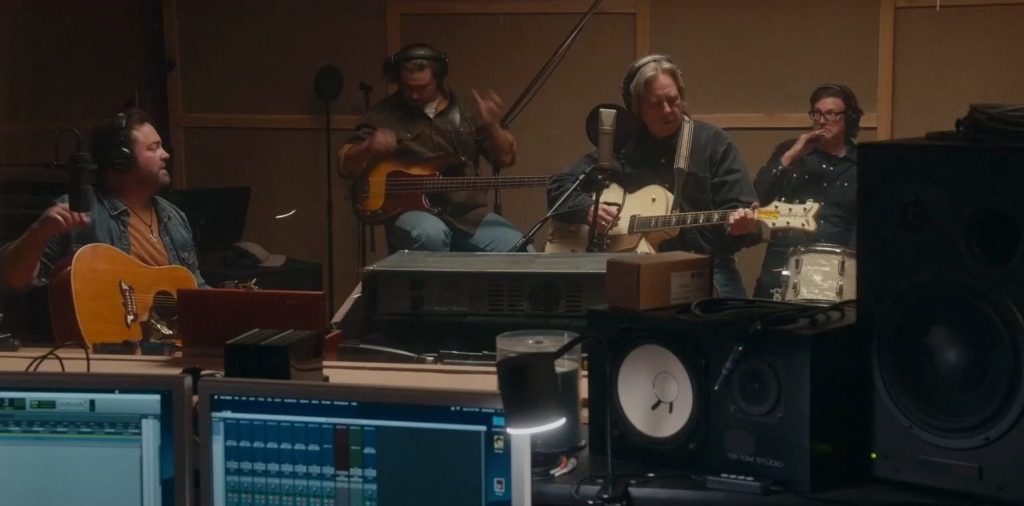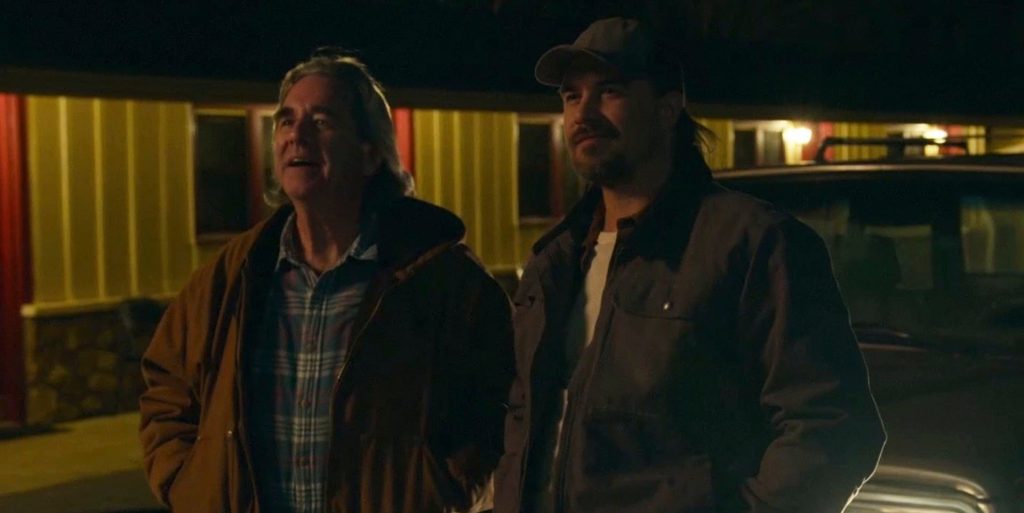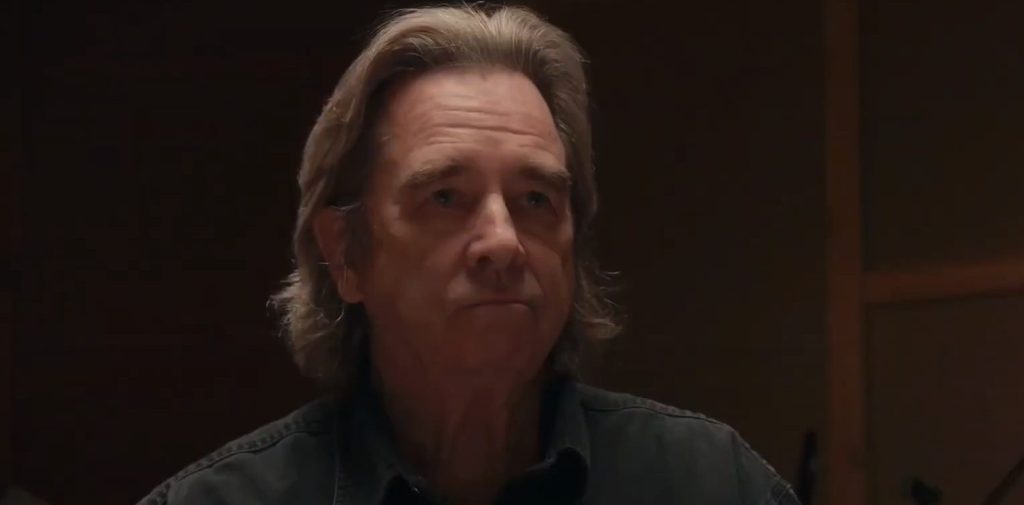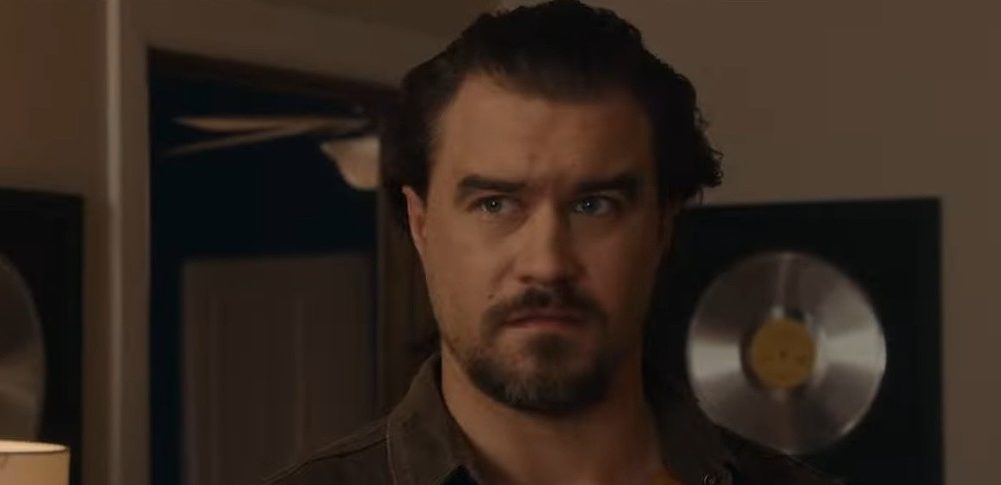Directed by William Wages, ‘The Neon Highway’ follows an aspiring country musician, Wayne Collins, on his quest to realize his dreams after he is injured in a car crash that forces him to give up. Twenty years after the tragedy, Wayne is desperate to escape his meager existence as a 9 to 5 worker, trapped in the bubble of his mundane lifestyle. Things start changing when he meets Claude Allen, a famed country singer and legend whose career is on a downward spiral. Together, the two embark on a journey in Nashville to realize their hopes and ambitions in an industry that is rapidly changing and beginning to leave them behind.
The film explores intimate themes of personal growth, second chances, redemption, friendship, camaraderie, and having the courage to follow up on one’s passions no matter the stage in life. Both Wayne and Claude end up learning from each other, gaining valuable insight into what it means to be a creative person who is slowly being forgotten by the world. Persistence and resilience come to the fore in the musical drama, which unearths the precious and intimate moments of life and what it means to have a dream, thereby sparking a debate regarding the narrative’s genesis and whether it is based on a true story.
The Neon Highway is an Examination of Survival Through Country Music
‘The Neon Highway’ is a fictional story penned by director William Wages and his co-writer Phillip Rob Bellury. The script was drafted several years ago with the intention of the renowned singer-songwriter Johnny Cash starring in the production. However, due to health complications on Cash’s part, the film was shelved for a while. During that period, Wages and his writing partner, Bellury, would discuss it from time to time until eventually updating the screenplay and turning it into a movie under the former’s direction. The narrative dives into the world of country music through the eyes of two washed-up souls who have lost everything except their passion for their music, and as such, it is their only way to salvation.

In an interview, Beau Bridges, who plays Claude Allen, said, “It’s about to two lost souls, really, who are looking for a survival in what is for them a crazy kind of existence. They’re not happy, and they come together in a very strange way earlier in the movie.”He also elaborated upon this theme of survival to Moviefone. “I think this movie is about survival, because our two characters are a couple of lost souls in different ways, and they’ve lost their purpose in life, a reason to get up and be passionate about something for the day,” he said. “They’re really at their wit’s end, and they find in each other, some common ground and they speak to each other. There are lessons to be learned by both because of their friendship.”
The Bond Between the Central Characters is Essential in The Neon Highway
The heartbeat of ‘The Neon Highway’ is the relationship between the younger Wayne Collins and the grizzled Claude Allen, who share each other’s experiences and hopes in an attempt to reconnect with their past. However, in the intervening time, life has taken its toll on both of them as they wander around aimlessly without managing to rekindle the spark they once had. As such, the developing friendship and mentorship within the pair is pivotal to their personal growth. Beau Bridges said, “That’s what turns him (Claude Allen) on. Then through this young man (Wayne Collins), he also sees, well, maybe I can get a resurgence to my music career. That may not be the way it turns out, but he still enjoys his relationship with this guy.”

“We’re from two different generations. I think in many ways, my character Claude sees Rob’s character as a son. It takes a while for that to get there, but I think in the end, that’s really what the relationship is,” he added. Rob Mayes, who plays Wayne Collins, also weighed in on this by highlighting the film’s drive to explore the hidden passion lurking underneath the beaten exteriors of both men. He considered it a truth within the story and the country music industry. “You’re constantly chasing a dream,” he said, “and then oftentimes doing it for not much money.” The actor emphasized that the film was ultimately about retaining hope and faith without giving up. In the film, Wayne and Claude’s relationship helps illustrate this further as they prop each other up on their individual journey.
The Neon Highway Explores the Value of Redemption and Forgiveness
While digging into the emotional depths of past scars and unfulfilled ambitions, ‘The Neon Highway’ also addresses the central theme of forgiveness, which overrides the two main characters’ anguished existence. Little by little, the screenplay forges out a path for them to travel and let go of their regrets and mistakes. “It’s a story that’s – I don’t know, kind of as old as time, right? I mean, it’s about the song. It’s about truth. It’s about relationships. It’s about hope and redemption, passion,” said Rob Mayes, underlining how pivotal those elements are in a person’s makeup, none more so than Collins and Allen, who are too busy reflecting on their past rather than what’s ahead.

Consequently, in order for them to move on, they have to learn to let go of their troubles – to forgive. “Yeah, forgiveness is a big part of it,” Beau Bridges summed up. “These people, neither one of these characters could have moved on without forgiving and being forgiven themselves. It’s an important part of it.” Therefore, while being fictional in its conception, the film manages to pinpoint certain prescient observations about people’s vulnerabilities and their desperate need to change positively. Like so many who believe themselves to be at the end of their journey, Collins’ and Allen’s quest to recover their country music flair showcases that there is always time left in the box to retrieve one’s original plans and see it to full fruition.
Read more: The Neon Highway: Where Was the Beau Bridges Movie Filmed?


You must be logged in to post a comment.